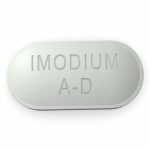Buy Erythromycin Online
Generic name: Erythromycin.
Dosage: Erythromycin 250mg, 500mg.
Category: Antibiotics.
Buy Erythromycin online without prescription: Erythromycin Online Pharmacy
Erythromycin – recommendations for use and dosage
Erythromycin is a macrolide antibiotic that is widely used in medical practice to combat infections caused by various bacteria. Here are the main features, spectrum of action, side effects and uses of this drug:
Range of action:
- Erythromycin is effective against a wide range of bacteria, including gram-positive (eg, Staphylococcus aureus, Streptococcus pneumoniae) and some gram-negative bacteria (eg, Haemophilus influenzae, Moraxella catarrhalis).
- It is also active against certain atypical organisms such as Mycoplasma pneumoniae, Legionella pneumophila and Chlamydia trachomatis.
Side effects:
- The most common side effects include nausea, vomiting, diarrhea, and stomach discomfort.
- In rare cases, allergic reactions such as hives or anaphylactic shock may develop.
- Erythromycin may also cause liver dysfunction, especially with long-term use.
Application in clinical practice:
- Erythromycin is often used to treat upper respiratory tract infections such as bronchitis, sinusitis, pharyngitis, and tracheitis.
- It can also be used in the treatment of skin infections such as acne and folliculitis.
- To treat infections caused by atypical bacteria, such as pneumonia or urinary tract infections, erythromycin may be used in combination with other antibiotics or antibacterial drugs.
Erythromycin is just one of many antibiotics that are used to treat infections. In medical practice, there is a wide range of antibiotics, each of which has its own characteristics, spectrum of action, side effects and uses. Some other common antibiotics include:
- Penicillins: For example, amoxicillin, ampicillin. They are effective against gram-positive bacteria and are often used to treat upper respiratory tract, urinary tract, and other infections.
- Cephalosporins: For example, ceftriaxone, cephalexin. They have a broad spectrum of action and can be used to treat a variety of infections, including skin, urinary tract and respiratory infections.
- Tetracyclines: For example, doxycycline, tetracycline. They are effective against a wide range of bacteria and are used in the treatment of skin infections, acne, respiratory infections and others.
- Fluoroquinolones: For example, ciprofloxacin, levofloxacin. They are often used to treat urinary tract infections, respiratory infections, and gastrointestinal infections.
This is only a small list of antibiotics used in clinical practice. The choice of a specific drug depends on the type of infection, the sensitivity of microorganisms to antibiotics, the patient’s condition and other factors. It is important to use antibiotics only as prescribed by your doctor and follow directions for use.














